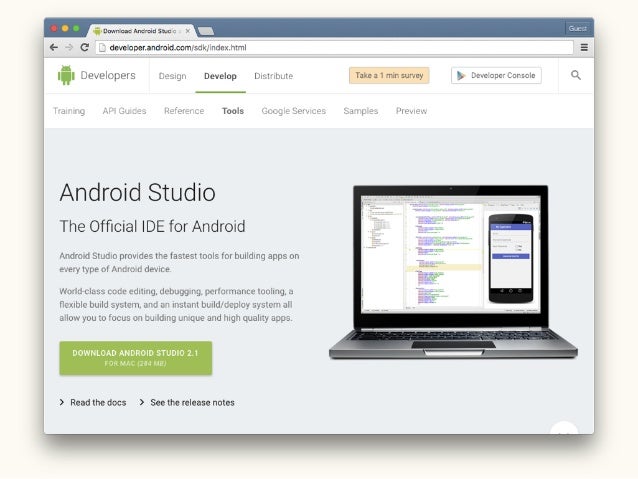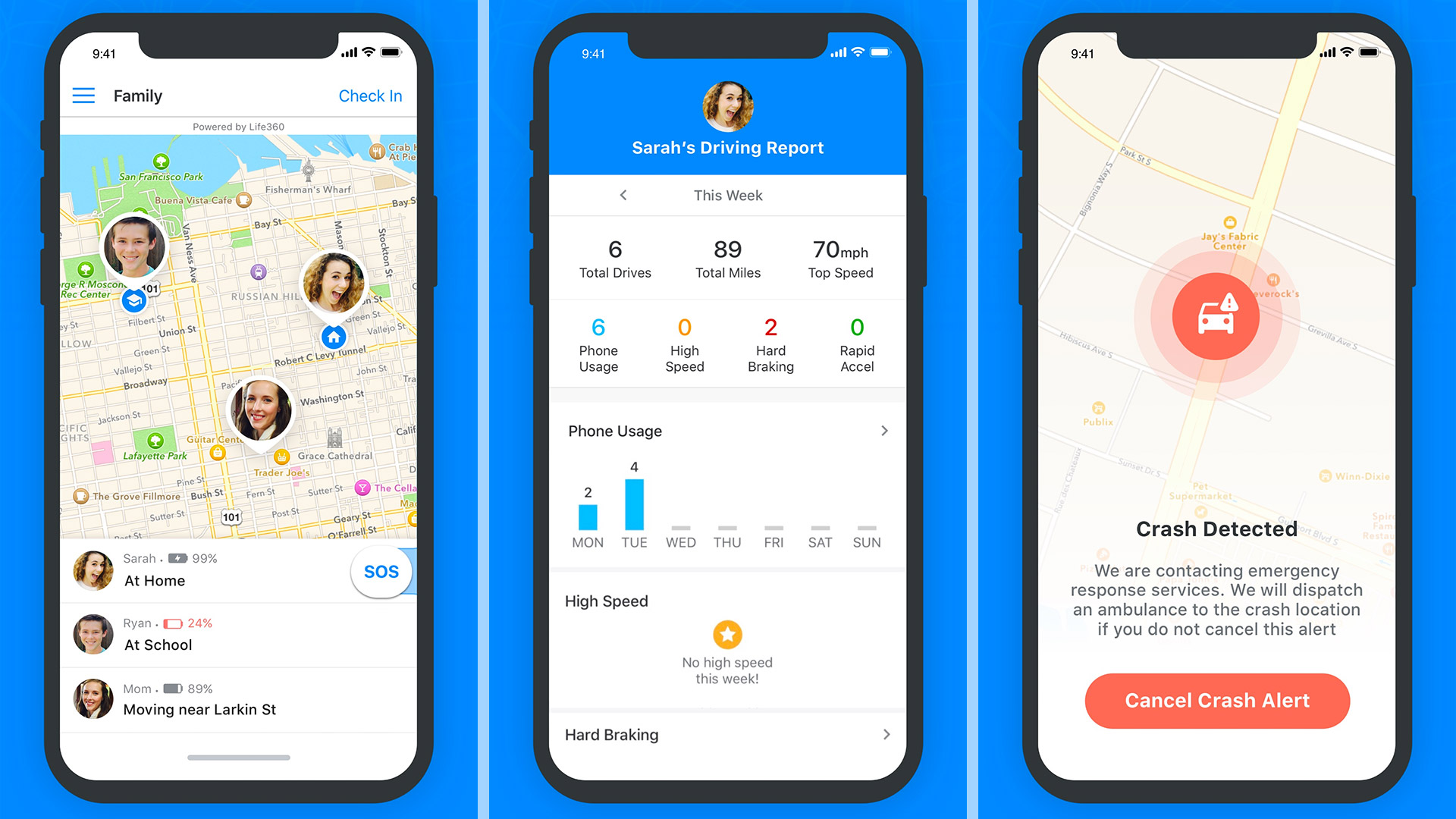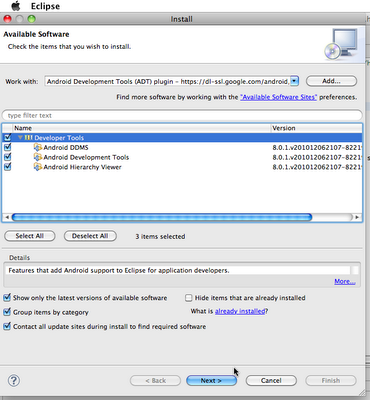Got an old Apple you want to talk to?
Apple Disk Transfer ProDOS (ADTPro) transfers physical disks and disk images between Apple II-era computers and the modern world. It can even get your Apple running if you don't have any disks at all. The host (server) component runs on today's computers with Java, and the 8-bit Apple (client) component runs on any Apple II or Apple /// compatible computer with 64k of memory or more.
Control your home security with our ADT Pulse app. Get direct access to monitor and control to your home with this security app. Call us at 833-238-8856 or visit ADT.com. CNET Download provides free downloads for Windows, Mac, iOS and Android devices across all categories of software and apps, including security, utilities, games, video and browsers.
ADTPro transfers disks using any of these communications devices:
- Serial ports
- Uthernet or LANceGS Ethernet cards
- The Apple's cassette ports
Also Read: Identify Dog Breeds Pro on PC (Windows & Mac) appbox googleplay com.myadt.android Download and Install MyADT on PC. Download Emulator of your Choice and Install it by following Instructions given: BlueStacks For PC. As you have Downloaded and Installed Bluestacks Emulator, from Link which is provided above. Download32 is source for adt shareware, freeware download - C ADT, ADT Investor Relations, 4Easysoft DAT to ASF Converter, Adobe AIR for Linux, NativeWinds Database Manager, etc. All Software Windows Mac Palm OS Linux Windows 7 Windows 8 Windows Mobile Windows Phone iOS Android Windows CE Windows Server Pocket PC BlackBerry Tablets OS/2.
ADTPro's main features:
Adt Download For Computers
- Transfers any storage device ProDOS or SOS can access
- Runs on any Apple II, Apple ///, or compatible with 64k of memory
- Runs on Linux, Mac OSX, OS/2, Windows, and probably Solaris
- Understands many digital disk image formats: .DSK, .SDK, .SHK, .BXY, .PO, .DO, .NIB, 2IMG
- Understands many physical Apple disk formats: DOS, ProDOS, SOS, Pascal, CP/M, among others
- Serves the original DOS ADT client as well as the ADTPro client
- Bootstraps Apple II and Apple /// computers from bare metal over serial or cassette ports
- Sends floppies in 'batch' mode without having to name each one
- Formats blank disks
- Serves virtual drives via serial or Ethernet on the Apple II and via serial on the Apple ///
The latest ADTPro can always be downloaded from the Github releases page.
Need Cables or Disks?
If you find yourself in need of serial or USB cables to connect to your Apple II, or just blank disks - commercial partner RetroFloppy has just what you're looking for. Visit the store at retrofloppy.com/products.

Bootstrapping the Apple II or Apple ///
If you already have a way to transfer virtual disk images to your Apple, you can use that to transfer the latest disk image containing ADTPro that comes with this project (ADTPRO-v.r.m.DSK or ADTPROSOS-v.r.m.DSK) to your Apple. Reboot the Apple with the ADTPro floppy, and you're ready to go.
If you don't have software for your Apple yet, more bootstrapping scenarios and configurations are detailed here:
- See II serial or II audio to get started with an Apple II.
- See /// serial to get started with an Apple ///.
If you still need to connect your host and Apple computers with physical cables, refer to the 'Connections' section for your connection type:
Here is a 5-minute video of the Apple II bootstrapping process, end-to-end. It hasn't been updated with the new look for version 2, but the process is the same:
SDK Tools is a downloadable component for the Android SDK. It includes thecomplete set of development and debugging tools for the Android SDK.
If you are new to the Android SDK, the SDK starter package installs thelatest revision of the SDK Tools in the <sdk>/tools directory.
If you are already using the SDK and you want to update to the latest versionof the SDK Tools, use the Android SDK and AVD Manager to get theupdate, rather than downloading a new SDK starter package. For more informationabout how to update, see Updating SDKComponents.
Revisions
The sections below provide notes about successive releases ofthe SDK Tools, as denoted by revision number. To determine what revision of the SDKTools you are using, refer to the 'Installed Packages' listing in the Android SDKand AVD Manager.
SDK Tools, Revision 9(January 2011)If you are developing in Eclipse with ADT, note that the SDK Tools r9 isdesigned for use with ADT 9.0.0 and later. After installing SDK Tools r9, wehighly recommend updating your ADT Plugin to 9.0.0.
If you are developing outside Eclipse, you must have ApacheAnt 1.8 or later.
If you are upgrading to SDK Tools r9 from SDK Tools r7 or earlier, the default installed locationfor the adb tool has changed from <SDK>/tools/adb to<SDK>/platform-tools/adb. This means that you shouldadd the new location to your PATH and modify any custom build scripts toreference the new location. Copying the adb executable from the newlocation to the old is not recommended, since subsequent updates to the SDKTools will delete the file.
- The default ProGuard configuration,
proguard.cfg, now ignores the following classes:- classes that extend
Preference - classes that extend
BackupAgentHelper
- classes that extend
- Ant lib rules now allow you to override
java.encoding,java.source, andjava.targetproperties. - The default encoding for the
javacAnt task is now UTF-8. - The LogCat view in DDMS now properly displays UTF-8 characters.
- The SDK Manager is more reliable on Windows. For details on the improvements, see the Android Tools Project Site.
- Early look at the new snapshot feature: To improve startup time for the emulator, you canenable snapshots for the system state. The emulator will then restore to the state when it lastclosed almost instantly. Note: The snapshot feature is still under activedevelopment and might not always perform as expected.
- Fixed the missing JAR file error that prevented
draw9patchfrom running. - Fixed the Windows launch scripts
hierarchyviewerandddmsto support the new location ofadb. - Known issues with emulator performance: Because the Android emulator must simulate the ARMinstruction set architecture on your computer, emulator performance is slow. We're working hard toresolve the performance issues and it will improve in future releases.
If you are developing in Eclipse with ADT, note that SDK Tools r8 isdesigned for use with ADT 8.0.0 and later. After installing SDK Tools r8, wehighly recommend updating your ADT Plugin to 8.0.0.
If you are developing outside Eclipse, you must have ApacheAnt 1.8 or later.
Also note that SDK Tools r8 requires a new SDK component calledPlatform-tools. The new Platform-tools component lets all SDK platforms(Android 2.1, Android 2.2, and so on) use the same (latest) version of buildtools such as adb, aapt, aidl, anddx. To download the Platform-tools component, use the Android SDKManager, as described in Adding SDKComponents
If you are upgrading to SDK Tools r8 from an earlier version, note that thethe default installed location for the adb tool has changed from<SDK>/tools/adb to<SDK>/platform-tools/adb. This means that you shouldadd the new location to your PATH and modify any custom build scripts toreference the new location. Copying the adb executable from the newlocation to the old is not recommended, since subsequent updates to the SDKTools will delete the file.
- All SDK platforms now support Library Projects.
- Support for a true debug build. Developers no longer need to add the
android:debuggableattribute to the<application>tag in the manifest — the build tools addthe attribute automatically. In Eclipse/ADT, all incremental builds are assumedto be debug builds, so the tools insertandroid:debuggable='true'.When exporting a signed release build, the tools do not add the attribute. InAnt, aant debugcommand automatically inserts theandroid:debuggable='true'attribute, whileant releasedoes not. Ifandroid:debuggable='true'is manually set, thenant releasewill actually do a debug build, rather than a releasebuild. - Automatic ProGuard support in release builds. Developers generate a ProGuardconfiguration file using the
androidtool — the build toolsthen automatically run ProGuard against the project sources during the build.For more information, see the ProGuarddocumentation. - New overridable Ant javac properties:
java.encoding,java.source, andjava.target(default values are'ascii', '1.5', and '1.5', respectively). - New UI for the HierarchyViewer tool.
 SDK Tools, Revision 7(September 2010)
SDK Tools, Revision 7(September 2010)If you are developing in Eclipse with ADT, note that SDK Tools r7 isdesigned for use with ADT 0.9.8 and later. After installing SDK Tools r7, wehighly recommend updating your ADT Plugin to 0.9.8.
- Added support for library projects that depend on other library projects.
- Adds support for aidl files in library projects.
- Adds support for extension targets in Ant build to perform tasks between thenormal tasks:
-pre-build,-pre-compile, and-post-compile. - Adds support for 'headless' SDK update. See
android -h update sdkfor more information. - Fixes location control in DDMS to work in any locale not using '.' as adecimal point.
Download Adt Bundle For Mac
SDK Tools, Revision 6(May 2010)If you are developing in Eclipse with ADT, note that SDK Tools r6 isdesigned for use with ADT 0.9.7 and later. After installing SDK Tools r6, wehighly recommend updating your ADT Plugin to 0.9.7.
The SDK Tools now support the use of library projects duringdevelopment, a capability that lets you store shared Android applicationcode and resources in a separate development project. You can then reference thelibrary project from other Android projects and, at build time, the toolscompile the shared code and resources as part of the dependent applications.More information about this feature is available in the Developing in Other IDEs document.
If you are developing in Eclipse, ADT 0.9.7provides the equivalent library project support.
SDK Tools, Revision 5(March 2010)
- If you are developing in Eclipse with ADT, note that SDK Tools r5 isdesigned for use with ADT 0.9.6 and later. After installing SDK Tools r5, wehighly recommend updating your ADT Plugin to 0.9.6.
- For Mac OS platforms, OS X 10.4.x (Tiger) is no longerofficially supported.

- Fixes SSL download for the standalone version of the SDK Updater.
- Fixes issue with 64-bit JVM on Windows.
- Adds support for platform samples components.
- Improves support for dependency between components.
- AVDs now sorted by API level.
- The AVD creation dialog now enforces a minimum SD card size of 9MB.
- Prevents deletion of running AVDs.
- Settings are now automatically saved, no need to click 'Apply'.
- Emulator now requires SD card to be 9MB or more.
- Fixes
layoutopt.batto execute correctly on Windows.
SDK Tools r4 is compatible with ADT 0.9.5 and later, but notcompatible with earlier versions. If you are developing in Eclipse with ADT, youmust update your ADT plugin to version 0.9.5 or higher if youinstall SDK Tools r4 in your SDK.
- Launcher script now forces GDK_NATIVE_WINDOW=true (linux only), to fix a compatibility issue between GTK and SWT.
- AVD Launch dialog now shows scale value.
- Fixes potential NPE in SDK Manager on AVD launch, for older AVD with no skin name specified.
- Fixes XML validation issue in on older Java versions.
- No longer forces the use of Java 1.5 on Mac OS X.

- No longer limits the size of the system partition.
- .apk packaging now properly ignores vi swap files as well as hidden files.
SDK Tools r3 is compatible with ADT 0.9.4 and later, but notcompatible with earlier versions. If you are developing in Eclipse with ADT, youmust update your ADT plugin to version 0.9.4 or higher if youinstall SDK Tools r3 in your SDK.
- Adds new
android create test-projectandandroid updatetest-projectcommands to allow for greater flexibility in the location of themain and test projects.
- Adds a button to dump HPROF file for running appplications (app must be ableto write to the sdcard).
- Button to start/stop profiling of a running application (app must be able towrite to the sdcard). Upon stop, Traceview will automatically be launched todisplay the trace.
- Fixed DDMS, Traceview, and the AVD Mananger/SDK Updater to run on Mac OS X10.6.
- Fixed screenshot support for devices running 32-bit framebuffer.
- Provides a new UI that lets you set options for controllingthe emulator skin, screen size/density, and scale factor used when launching an AVD.
- Provides improved AVD creation UI, which lets you customize the hardwareproperties of your AVDs.
- Now enforces dependencies between platforms and tools components, andbetween SDK add-ons and platforms.
The SDK Tools r3 package includes layoutopt, a new command-line tool that helps you optimize your layout hierarchies. When run against your layout files, the tool analyzes their hierarchies and notifies you of inefficiencies and other potential issues. The tool also provides simple solutions for the issues it finds. For usage, see layoutopt.
